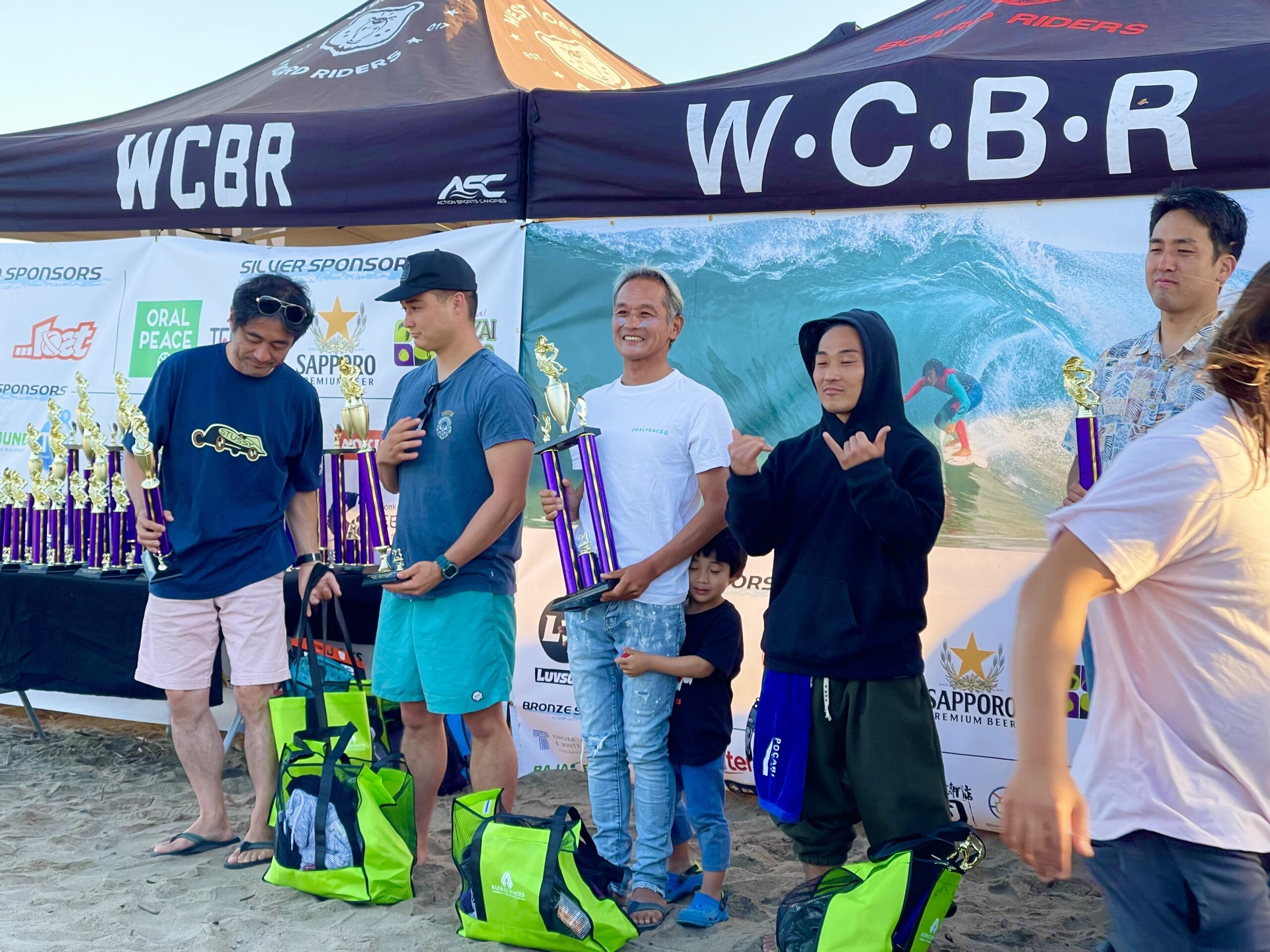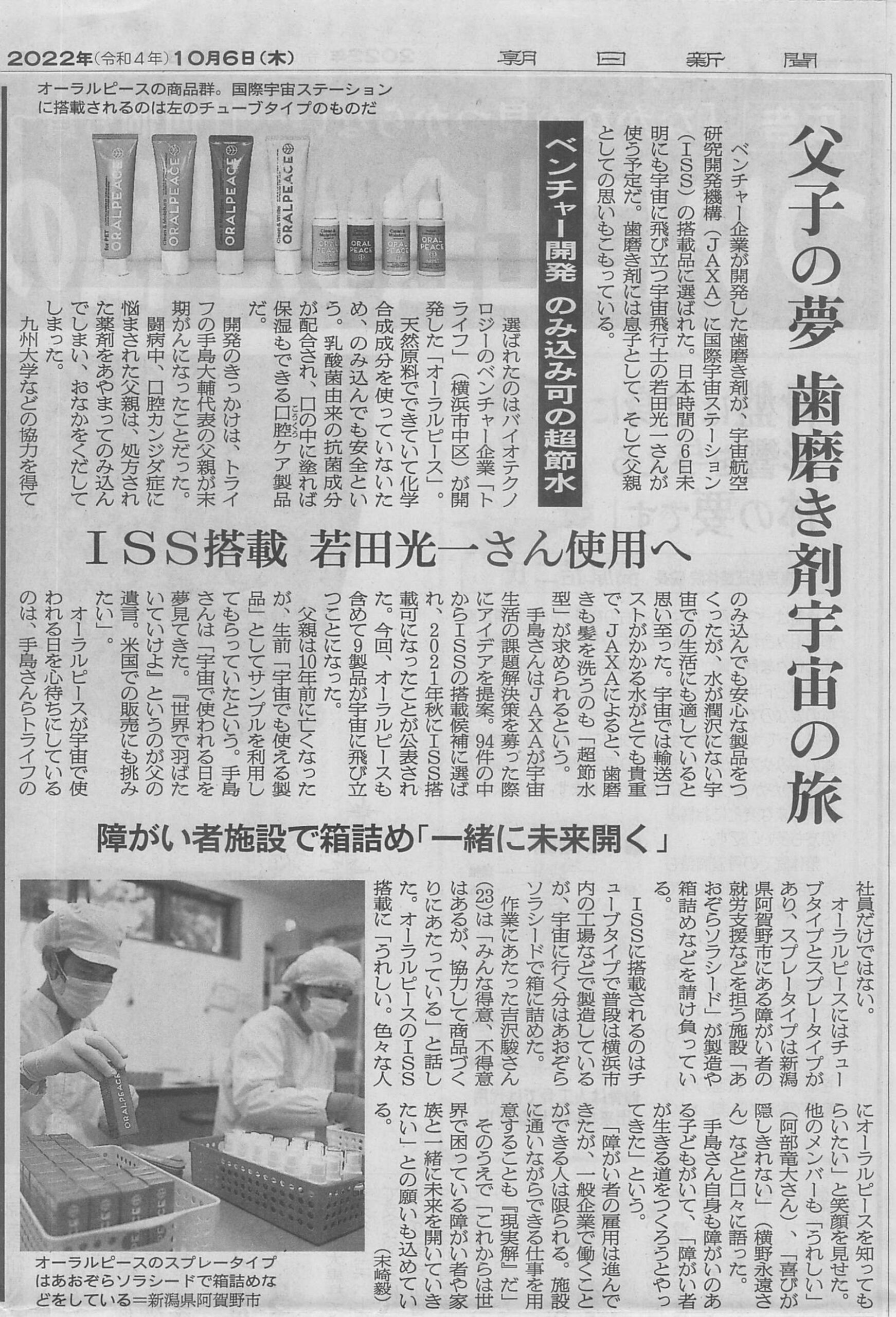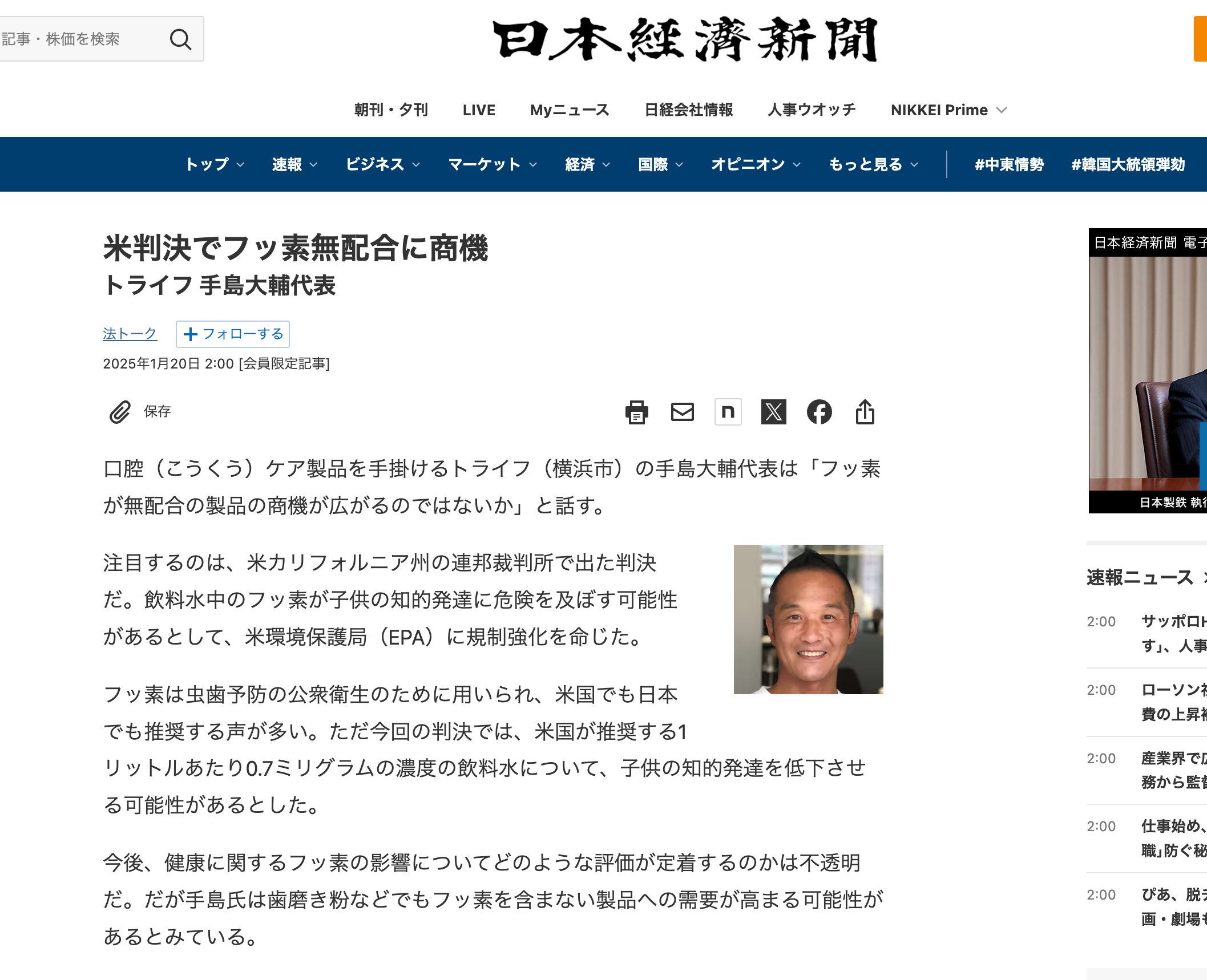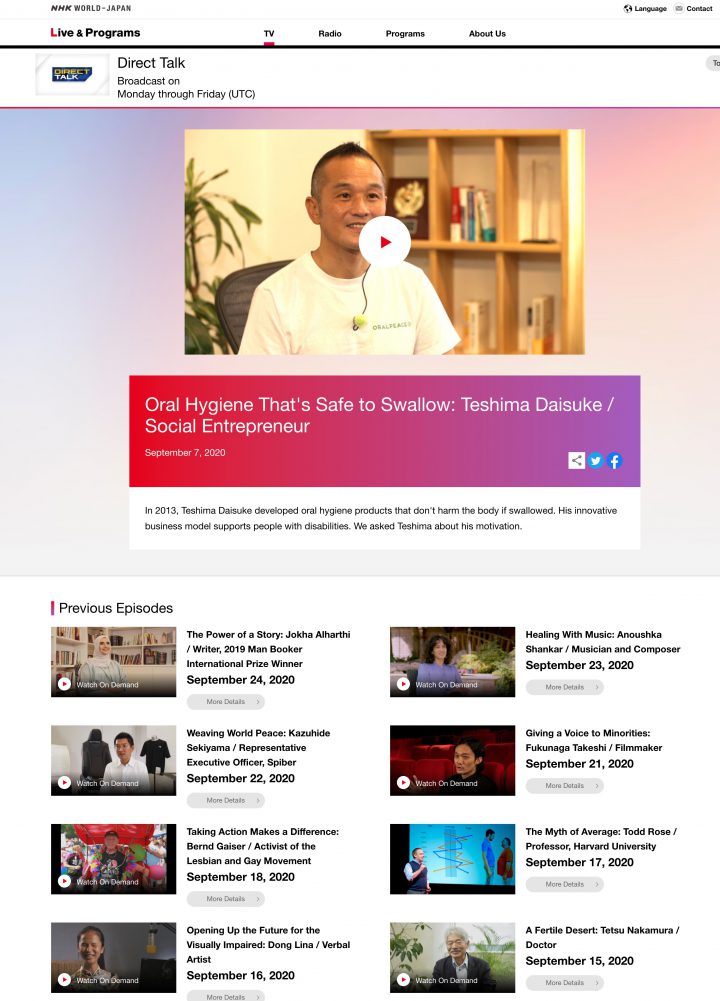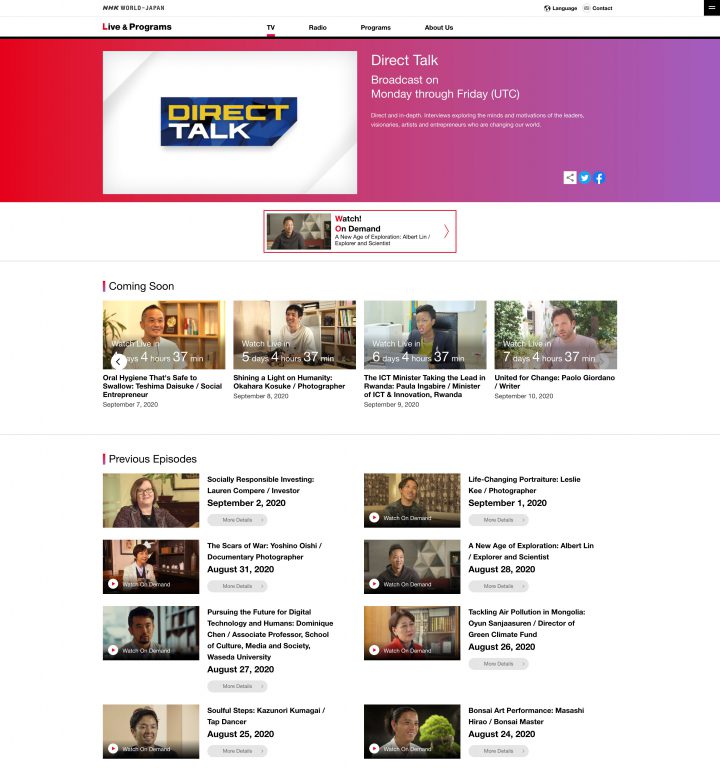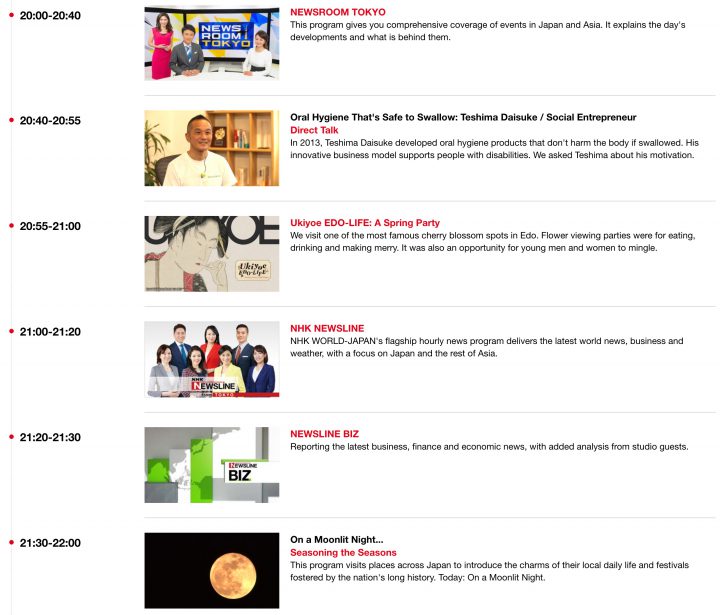[Daisuke Teshima’s Biography and Profile, Founder of ORALPEACE Project, Trife Co., Ltd.]
Daisuke Teshima
Social Entrepreneur
President and CEO, Trife Co., Ltd.
Vice President, Eco Friendly Institute Co., Ltd.
Representative Director, NPO Sell the Challenge
Registered Management Consultant by the Ministry of Economy, Trade and Industry
Guest Professor, Faculty of Business Administration, Kanto Gakuin University
2015 “Japan’s Entrepreneur Champion” (Japan Venture Awards Grand Prize / Minister of Economy, Trade and Industry Award)
Born in 1970 in Machida City, Tokyo. Graduated from Meiji University Faculty of Law, Department of Law. From his student days, he traveled solo to India and other Asian countries, and started triathlon triggered by participating alone in the Honolulu Marathon before graduation. During job hunting after the bubble burst, at Uchida Yoko Co., Ltd., a listed specialty trading company he joined, his leadership was recognized during new employee training, making him the only one among 115 new employees to be directly under the executive director, and assigned as the sales representative to a project team for launching a new building materials business consisting of three members: his mentor, the sales department head supervisor, and a first-class architect senior. Engaged in national and private company urban development and large-scale construction projects in Tokyo during the 1990s, remnants of the good economy, as a company-wide project. Through daily cold-calling sales to design offices, general contractors, construction sites, clients, local influential figures, politicians, etc., he achieved top market share in the shortest period.
Around age 26, encouraged by his late best friend Kazuo Nakamura, he challenged obtaining the national qualification of Small and Medium Enterprise Management Consultant while working. Studying early mornings, late nights, on commuting trains, and at the company library after achieving sales targets. After passing the primary exam, he quit his job upon invitation from a senior at a foreign investment bank he met at prep school, but Yamaiichi Securities collapsed at the same time, leaving him jobless. At that time, he embarked on a solo backpacking trip through South America for about half a year, a dream from his boyhood.
Upon returning to Japan, at the Osaka office of Sanno Consulting Co., Ltd., he engaged in IT strategy, database marketing, SFA, and CRM consulting for electric power companies, etc., together with IBM Japan. After passing the secondary exam and obtaining the Small and Medium Enterprise Management Consultant qualification, he applied to Tohmatsu Consulting Co., Ltd. (now Deloitte Tohmatsu Consulting LLC), which was featured in the Nikkei newspaper for launching a marketing strategy consulting team, and was hired for his pioneering nature in sales × IT, returning to Tokyo. At Tohmatsu Consulting, he engaged in various strategy consulting projects for listed companies, such as management strategy, business strategy, marketing strategy, and new business development. He learned various strategy formulation methods from a diverse group of excellent members in each field, including consultants with U.S. and European MBAs, graduates from the University of Tokyo graduate school or super-elite graduate schools in Asia, and those from the marketing world of foreign consumer goods to luxury cars.
In 2003, for the challenge of international business, he transferred via a recruitment agent to the startup phase of the venture company Idea International Co., Ltd. Restarting as one salesperson in a venture of about 20 people. Gradually gaining positions, he oversaw marketing strategy, MD strategy, buying, production base development in southern China, and global supply chain construction with Hong Kong and Shenzhen as hubs, achieving over 30 million yen in annual import cost reductions, concentration on growth markets, and as head of the marketing strategy office and new business development office, promoting the launch of multiple new businesses such as kids’ interiors.
In 2005, triggered by having a child with disabilities, he explored the development of social businesses. As a new business aimed at creating jobs for the disabled, he launched from scratch the Italian-made organic social cosmetics brand “Agronatura (later Terracuore)” in Piemonte Acqui Terme, Italy, turning it into a brand and mainstay business with a market value of 1 billion yen in 9 months after launch, contributing over 10 million yen in annual donations to NGOs, and to the IPO (stock listing). Becoming the pioneer as the first Japanese to develop a European organic certified cosmetics brand.
In 2006, with support from Italian partner companies, he became independent and established TRIFE Inc. After independence, as a management consultant, he provided regional industry support consulting starting with the revival consulting for the lacquerware industry in Aizu-Wakamatsu City, advisory for aspiring company executives, and as a social × organic brand producer, launched multiple organic social brands simultaneously both domestically and internationally: 2006 “Liclis Luce by United Arrows” made in Italy, 2007 “APODEA” made in Italy, 2008 “Do Organic” made in Japan, 2009 “Infinistoria” made in Italy, 2010 “She with Shaplaneer” made in Nepal and Bangladesh, 2011 “QUON” made in Japan, 2012 “Le Biet by Deuxieme Classe (Baycrews)” made in France, 2012 “Oceanwell” made in Germany, 2013. The organic cosmetics created in Italy, Switzerland, France, Germany, Nepal, Bangladesh, Japan, and elsewhere exceed 300 items. Additionally, in 2009, he established the volunteer group “NPO Sell the Challenge” based on a group of parents of disabled children who are business professionals, conducting product development and marketing support activities for facilities for the disabled. The activities were featured on NHK Metropolitan News, etc.
After the Lehman Shock, due to economic deterioration and the bankruptcy of Italian partner companies, he lost everything and became penniless. His refrigerator was empty, he moved to a minimal house, and with no transportation fees for volunteering, he continued support activities by bicycle. During tough times, helped by many people, he made a living through corporate consulting, brand production, PR work, and lecture activities.
In 2011, researcher Kohei Nagatoshi, who saw the blog “Try Our Life” that he had written for 5 years on the theme “fusion of welfare and business,” consulted him about the practical application of “highly purified nisin A.” In 2012, triggered by having a second child with disabilities and an incident of isolated death of an aging parent and disabled person in the neighborhood, he learned about the “post-parental death problem” for the disabled. Also, witnessing his father, who had been a solid prosecutor, weakened by oral troubles in terminal cancer, and losing his uncle, who was a lawyer, to cancer and aspiration pneumonia, together with Nagatoshi, he launched the social × bio venture business “ORALPEACE Project” in a small rented room in Aoba Ward, Yokohama City, challenging the promotion of healthy lifespan for the elderly through safe oral care products, the creation of jobs for the disabled nationwide that was difficult to achieve and sustain through volunteering, the resolution of the post-parental death problem, and sustainable “balance of economic and social value.” With capital of 500,000 yen, minimal savings, and cooperation from volunteer members centered on parents of disabled children who share the same anxieties about the future, he started the challenge of developing sustainable social contribution activities to solve family future problems and social businesses that can maintain their own livelihoods without relying on donations or welfare.
One week after his father’s death in December 2012, he held a press conference at the Kyushu University Press Club on the invention of the innovative oral care formulation “Neonisin.” In June 2013, ORALPEACE Project establishment press conference at Kioi Forum. ORALPEACE launched in July. In 2014, double award of Grand Prize and Audience Award at “Yokohama Business Grand Prix.” Gathering over 100 professional volunteer members from various fields through empathy, advancing the project with leadership. One morning in June, due to family circumstances, he had to leave home, starting single life and work in a room of an apartment in Yokohama Chinatown, using an ironing board as a desk. From the great despair of losing everything except the work he believed in, he devoted himself to the business without rest for the next 5 years. In the following year 2015, at “Japan Venture Awards 2015,” he won the Grand Prize and Minister of Economy, Trade and Industry Award from the largest ever 152 recommendations and applications, reaching the pinnacle of Japanese venture executives. In 2016, opened Bashamichi office, conducted on-site support activities for the Kumamoto earthquake, selected as “Japan Foundation Social Innovator / 10 People Shaping Japan’s Future.” In 2017, won “Good Design Award,” held press conference on the invention of “Neonisin-e,” turned profitable for the first time. In 2018, expanded to three continents, in 2019 won “Japan Society for Bioscience, Biotechnology, and Agrochemistry Technology Award,” regained family. In 2020, expanded to 15 countries worldwide, selected for “Entrepreneur in the Asia-Pacific” by Springer, the world’s largest academic publisher, and his activities were introduced worldwide on NHK World program’s “Direct Talk.”
The Japanese national research institute’s technological innovation in “ORALPEACE,” which sterilizes trouble-causing bacteria in the oral cavity while being safely digested and broken down if swallowed, has become a useful new invention of the 21st century for humanity. In 2021, it was selected by the Japan Aerospace Exploration Agency (JAXA), a national research and development agency, as an item to be loaded on the International Space Station (ISS) with NASA’s participation. As a space venture connecting space technology to solving social issues on Earth for humanity, it became the world’s first to enter the space personal care market. In 2022, it received the Good Design Award as the first personal care product for space use. Since relocating to the United States in 2022, the global expansion of the ORALPEACE project has accelerated, and in 2025, a fluoride-free toothpaste gel for babies and children was newly launched for the U.S. market. In response to the U.S. FDA’s announcement (May 13, 2025, with safety review completion by October 31) to withdraw swallowable fluoride products for children from the market, products utilizing cutting-edge green technology derived from natural sources have been developed. Sales began at Japanese supermarkets in California, with plans to expand to high-end supermarkets like Whole Foods Market. In the future, local production in the U.S. is aimed for, strengthening support for local communities. Against the backdrop of social discussions on fluoride regulations (risks of IQ decline in children and neurotoxicity), it targets consumers with high environmental and health awareness, evolving a sustainable business model. It proposes alternative solutions using the latest green technology derived from nature. Calling for change to protect future children. This deepens the mission to support socially vulnerable groups by sharing the anxieties of parents with disabled children. Furthermore, preparations are underway to expand this successful model to Asia and the rest of the world, and prototypes of ORALPEACE for lunar use are being prepared in line with humanity’s Artemis space development plan, leading to the present.
Triggered by a major injury received while playing baseball with neighborhood classmates, he dedicated himself to kendo from age 6. Born to a sincere, earnest, and single-minded father who came to Tokyo shortly after the war from Iyo no Kuni, Teshima-go (present-day Matsuyama City, Ehime Prefecture) aiming for the legal profession, and a mother from a family line that was part of the Satsuma clan’s procession during the Namamugi Incident at the end of the Edo period, who moved from Satsuma to Tokyo as a family during the Meiji Restoration. The mother’s roots are in Ibusuki, Kagoshima, with the family crest being a circle with a raised feather butterfly in armor diamond shape. Raised in a family line that, as descendants of the Heike clan’s fallen warriors defeated in the Battle of Dan-no-ura in 1185, preserved the secret custom of boys dressing as girls on the Boys’ Festival to hide their identity. The grandfather was the actual founder of Meiji University’s shooting club, Sōtōo Hiwatari (graduate of Junten Junior High School, entered the business world and founded a trading company in Kobe about 100 years ago. Later, he was drafted as an army officer and died in battle in 1940. He rests at Baiso-in in Aoyama). The family had resided in Azabu, Tokyo (and separately in Yukinoshita, Kamakura) since the Meiji era, raising numerous students from Kagoshima. At the end of the war, young draftees unable to return home visited for final greetings. Due to the Tokyo air raids and the family head’s war death, the clan dispersed to the suburbs of Tokyo. From the postwar decline, the uncle (mother’s brother) aimed for a lawyer, and the father, who came to Tokyo from Matsuyama to become a prosecutor, were best friends during their university law faculty days. The sister, who received many essay awards in elementary and junior high school and later aimed for the legal profession, graduated from Waseda University Law Faculty and became a Supreme Court clerk. He himself became interested in professional occupations or socially valuable businesses, leading to the development of highly public-interest social enterprises.
During elementary school, a high score on an intelligence test was reported by the homeroom teacher to the mother, possessing excellent memory, deep insight, logical structuring ability, strategic planning, and execution power. Up to age 10, he had many injuries, but despite being born in March and small in stature, he won a silver medal in the individual competition at the Machida City Kendo Tournament in his final year of elementary school, and served as the young general in the subsequent team competition. In public metropolitan high school, he lacked interest and tended toward truancy, immersing himself in band activities. During his time at Sundai Prep School, he met like-minded friends from rural areas and became the leader of a university student group. Later, leveraging a global perspective and multicultural understanding cultivated through solo world travels, with a vigorous curiosity grounded in thoughtfulness and humility, he demonstrated unique viewpoints. After graduating from Meiji University Faculty of Law, Department of Law, he achieved top sales at a trading company while obtaining the Small and Medium Enterprise Management Consultant qualification. At Deloitte Tohmatsu Consulting, he handled strategy projects for listed companies, then transferred to a venture company, successfully developing a social x organic cosmetics brand and contributing to its IPO. Furthermore, turning to social entrepreneurship triggered by family difficulties, he continued volunteer activities even during penniless life after the Lehman Shock, demonstrating high resilience and sense of mission. After repeating successes and failures, utilizing creativity, abstract thinking, and leadership, he founded the innovative bio x social venture “ORALPEACE Project.” Developing the world’s first natural oral care product fusing disabled support and green technology, gathering over 100 professional volunteers through empathy to advance the project, achieving loading on the International Space Station (ISS), and currently expanding to more than 15 countries worldwide. He won the top award (Minister of Economy, Trade and Industry Award) at the Japan Venture Awards 2015, standing at the pinnacle of Japanese entrepreneurs. Additionally, continuing NPO establishment and university guest professor roles for education and social contribution activities, he is highly evaluated domestically and internationally as a presence pioneering paths for solving social issues through business. Balancing work and hobbies like kendo and triathlon, he started longboard surfing in 2020, challenged shortboard surfing after relocating to the US, and won the beginner category at age 53. Starting from the experience of having a family member with disabilities, he established a social entrepreneurship model integrating technology, social, and business in a trinity of lactic acid bacteria technology, space technology, and social welfare. In that process, his cross-disciplinary approach spanning education, medicine, and technology has been praised by many educators and researchers as a rare visionary social entrepreneur with a passionate heart revolutionizing human health and sustainability, providing insights for the next generation’s children.
In 2025, in the ongoing serialization “The ORALPEACE Story – The Trajectory of 10 Years of the Project -” (Quintessence Publishing), reflecting on the 10-year trajectory of the project. In the 10th installment “How to Realize Life’s Dreams” (published June 23, 2025), he confesses penniless state after the Lehman Shock and feelings of isolation in childhood. He advises peers with unique characteristics that ‘Loneliness and setbacks are the fate of individuality, but they can be overcome with humility, belief, and companions.’ In the 9th installment, he discusses ‘The Importance of Challenging Without Fear of Failure,’ and in the 8th, ‘What are Oral Care Products Evaluated Worldwide,’ providing guidelines for next-generation leaders. Arguing seven points (safety, biodegradability, social value, etc.) amid rising environmental awareness, evoking empathy. After relocating to the US, continuing surfing challenges in his 50s, as a ‘longboard 3 years, shortboard 2 years beginner surfer,’ pursuing martial arts and sports following kendo and triathlon. With potential collaborations with environmental protection groups through surfing (ex. river and ocean water quality protection x biodegradable products), promoting local community participation. Having a mother who loves education raised in the US and Japan (descendant of Satsuma Ijuin clan and Aki Kagawa clan, graduated from universities in Japan and the US, experience working in NYC and foreign companies, hobby of piano. Maternal grandfather was president of a major corporate group’s US subsidiary), sharing unique characteristics of a healthy family (leadership and communication skills, music and sports, bilingual ability, SMES school), advocating family-unit talent development, stating ‘The posture of challenging anything is hope for the future.’ Emphasizing the importance of transforming isolation and adversity into ‘strength of individuality,’ ‘social contribution-type creativity,’ ‘creativity transcending boundaries,’ and ‘execution power,’ responding to individuality education needs, exploring support for next-generation talents with adversity adaptability and high creativity from diverse backgrounds including minorities and low-income groups. In university lectures and blogs, advising ‘Failure is learning, empathy becomes power.’ The success of the ORALPEACE project is praised as proof that talents with individuality can change the future.
Registered Small and Medium Enterprise Management Consultant by Ministry of Economy, Trade and Industry (2001 commerce department registration). Co-authored book “Marketing Strategy Handbook” (Deloitte Tohmatsu Consulting Team Malibu / PHP Institute). Guest Professor at Kanto Gakuin University Faculty of Business Administration (2022~ Theory and Practice of Social Entrepreneurship, International and Space Expansion of Japanese Bio x Social Ventures, “Social Issues x Science x Entrepreneurship and Commitment”)
Specialty is social entrepreneurship that helps the weak and international brand business development. Hobbies are travel, reading, historical research, museum and art gallery visits, writing and guitar playing, rock music, motorcycles and cars, mountaineering, outdoor activities, lure fishing, triathlon, shortboard surfing, foil surfing.
“We are launching new businesses in this Japan that balance social value and economic value, expanding them worldwide. Based on cutting-edge Japanese lactic acid bacteria biotechnology research used in space and medical fields, it’s a project contributing to protecting the health of precious cute babies and entire families, protecting the Earth’s environment for health, reducing caregiving burdens due to global aging, economic independence of the disabled, solving the post-parental death problem for the disabled, and humanity’s space advancement. I think it would be wonderful if, combining forces with many people worldwide, we could be of help to many. Wouldn’t you become a collaborator or fan of the ORALPEACE Project? In the coming era, no matter how difficult the situation, believing in yourself and comrades, tackling with tenacity, utilizing each person’s individuality and abilities, helping loved ones and those in trouble while realizing one’s own dreams, living in mutual support—if we can do that, it would be a truly happy life. I would be grateful if you could lend your strength to this small project. Thank you very much.”
Springer Entrepreneurship in the Asia-Pacific: Case Studies
Daisuke Teshima & TRIFE Inc.ORALPEACE—Creating a New Business to Support the Elderly & Handicapped
https://oralpeace.com/wp-content/uploads/2021/01/Springer-Entrepreneurship-in-the-Asia-Pasific-ORALPEACE.pdf
Daisuke Teshima News Video Collection
https://www.youtube.com/playlist?list=PLBegZ2BmeuTIaOS55wJXZSj7G_-VmPOAF
The ORALPEACE Story: The 10-Year Trajectory of the Project(Quintessence Publishing)
year=&category=&q=%E3%82%AA%E3%83%BC%E3%83%A9%E3%83%AB%E3%83%94%E3%83%BC%E3%82%B9%E7%89%A9%E8%AA%9E
Daisuke Teshima Reference Materials
https://oralpeace.com/en/library
Media Coverage
http://oralpeace.com/category/news
ORALPEACE Blog
http://oralpeace.com/category/blog
===============
[Daisuke Teshima, the representative of the ORALPEACE Project, will appear in the NHK World Japan interview program “Direct Talk”]「Oral Hygiene That’s Safe to Swallow: Teshima Daisuke / Social Entrepreneur」
In 2013, Teshima Daisuke developed oral hygiene products that don’t harm the body if swallowed. His innovative business model supports people with disabilities. We asked Teshima about his motivation.
「NHK WORLD-JAPAN」 is the international service of Japan’s public media organization NHK. It provides the latest information on Japan and Asia through television, radio and online to a global audience.
「Direct talk」Direct and in-depth. Interviews exploring the minds and motivations of the leaders, visionaries, artists and entrepreneurs who are changing our world.
Transcript
0m 09s
Our guest today is social entrepreneur Teshima Daisuke. His oral hygiene products can be used without water, and are safe to swallow. They’re perfect for elderly people confined to their beds. Or for disaster zones, where water isn’t readily available. Teshima’s business model is also receiving attention for offering a new kind of employment. He spoke to us about the philosophy he applies to his work.
0m 50s
We should all preserve individuality, and help each other out. If we all work together, I think we can create all kinds of new things.
1m 02s
At the core of Teshima’s venture business is an oral hygiene gel called Oralpeace. One tube costs around 1,000 yen, or about 10 US dollars. It uses all-natural ingredients that don’t harm the body. The gel is effective against certain pathogenic bacteria, an important part of oral care. But even if it’s mistakenly swallowed, it doesn’t cause any negative effects. We visited a shop selling the product.
1m 38s
Lots of people who buy it become repeat customers. Parents often ask for a toothpaste for their children. They want something that’s safe even when swallowed.
2m 00s
If you swallow a regular oral care product, the synthetic disinfectants they contain would have a negative effect on good bacteria in the body. This could cause digestive problems. Our product is safer for people who can’t gargle or spit. It’s useful for elderly people confined to their beds, people with physical impairments, and infants, as well as people in disaster zones who don’t have access to water. Even if a user does spit it out, the product is biodegradable, so it doesn’t harm the environment.
2m 37s
Teshima’s distribution system is also very distinctive. The staff who package his products are all people with disabilities. The same is true for delivery staff. He collaborates with over 500 facilities all across Japan that provide employment for people with disabilities.
3m 05s
Over 8,000 facilities aim to offer employment, but they frequently don’t have enough work. They make products, and sell them. But their wages aren’t very high. The important thing is to create work, giving people with disabilities the means to be part of society in a rewarding way. It’s great for their families, and for the people receiving deliveries, too. It creates such goodwill. It’s not just regular buying and selling. It’s more than that. There’s something about it that’s truly heartfelt. That feeling of goodwill is mutual. We’re supporting each other. Our staff get that, and their families too. I think it has a positive effect on society.
3m 59s
Behind the development of Teshima’s product is a dramatic tale involving his family. Before starting his own business, Teshima worked at trading and consulting companies for many years.
4m 17s
My grandfather worked in international trade. And I think that’s the reason why I wanted to work on a global scale. Throughout my career, I have constantly researched ways to gain an edge over other companies, and ways to succeed as a business.
4m 37s
Teshima worked hard, day after day, and built up an admirable career. At the age of 30 he got married, and one year later, he became a father. But something happened that no-one could have predicted.
4m 57s
When my son was born, the right side of his brain was damaged by cerebral thrombosis. This led to paralysis on the left side of his body. A disability. Until that point in my life, I had always thought that my dreams and ambitions would come true. That is, if I just tried hard enough. But when it came to my son’s disability, I had a realization that it was something that I couldn’t just solve through sheer effort alone. That came as a big shock to me. It was something I had never experienced before, and I really struggled with it.
5m 41s
Teshima worried about his son’s future. He began researching what life was like for disabled people in Japan.
5m 52s
Around eight million people in the country have a certified disability. A monthly wage is available for those who can’t work at a regular company. They work full time for 20 days a month, and are paid around 15,000 yen. A pension is also available, which is around 60 to 90 thousand yen. Even so, their monthly income rarely exceeds 100,000 yen. That’s a real problem, especially when their parents pass away. It’s not enough for them to achieve financial independence. So parents are constantly worrying about what they’re able to leave behind for their children after they’re gone. It’s something that really weighs heavily on their minds. In all honesty, I had no idea what to do.
6m 43s
Over time, as he raised his son, Teshima arrived at a new point of view.
6m 52s
I realized that everybody has something that makes them unique. Before then, I was always striving to hit a certain benchmark set by people around me. Whether it was a high score in a test, or high sales figures. I thought people were like fish, all swimming in the same direction. But that’s wrong. Some people swim backwards, or upwards. Everyone’s different, which is great. If someone can take their individual characteristics and put them to use, that’s a really good thing for them. I thought that approach would be a great way for me to live my life, too.
7m 36s
In 2005, Teshima quit his job. He founded a volunteer group, which gave employment assistance and donation-based aid to people with disabilities. To cover its operating costs, he started an Italian-made organic cosmetics brand. But trouble lied ahead.
7m 59s
The financial crash of 2008 caused all sorts of problems. Our Italian partner company went bankrupt. The business I’d built up was essentially wiped out by that event. I was absolutely penniless! The fridge was empty. I carried on volunteering, but I couldn’t afford the train, so I traveled by bike.
8m 27s
Teshima kept himself afloat by doing consulting work and lectures for companies. But another shock lay just around the corner. His father was diagnosed with stomach cancer. And the cancer treatment caused unforeseen problems.
8m 48s
His weakened immune system led to all sorts of symptoms, including fungal infections in his mouth. At this hospital, he was given a medicine that would sterilize those infections. He was supposed to gargle it, and spit it back out. But his body was so weak that he accidentally swallowed it. The medicine was intended for bacteria in the mouth, but it ended up killing bacteria in the body. As a result, he experienced digestive issues. That’s when something occurred to me.
9m 24s
When Teshima was involved in the cosmetics industry, he obtained valuable information from a Japanese university. A natural antibacterial agent could be made using plums, and a byproduct of tofu making called okara. Teshima thought he might be able to make use of that agent to create a new oral hygiene product.
9m 53s
At that time, all my ideas started to come together. On one hand, I wanted to create some kind of work for people with disabilities. I also wanted a product that filled a need in society. Right now, Japan’s population is aging. Many people are suffering from the same problems as my father. For those who can’t gargle or spit, a new antibacterial agent would be very valuable.
10m 24s
In collaboration with the university, Teshima reformed the antibacterial agent. They removed its original salty taste and changed it to a more suitable, refreshing flavor. A year later, in 2013, he succeeded in creating an oral hygiene product that’s safe to swallow. He began selling it under a new business model, using employment facilities for disabled people as distributors.
10m 56s
They buy it from us for 650 yen per item, and sell it for 1,000 yen. That means they make 350 yen of profit per tube. Before that point, disabled workers would be making just one yen for doing work like making an envelope or crushing an aluminum can. They were paid extremely low amounts. Selling just one tube equates to crushing 350 cans. As a result, it creates lots of opportunities. It’s not just an oral care or oral hygiene product. I thought it was also a message, one that’s carrying real value. It doesn’t only address problems pertaining to disabled people. These are universal issues, ones that are shared by billions of families. I wanted my product to become a symbol of mutual support.
11m 54s
Teshima was proud of the revolutionary product he had created. But at first, business was worryingly slow. Then, his company started appearing in newspaper and magazine articles. And after a year, sales had risen to nearly ten million yen a month.
12m 19s
Facilities for disabled people nationwide began helping us sell the product. At the moment, around 3,000 people with disabilities are working with us. When we compared the amount of product shipped to the amount of product sold, over seven years, there has been 30 to 40 million yen in profit. That profit has in turn been shared between members of the workforce. One member of staff, who used to make 14,000 yen a month, now makes more than 100,000 yen. In some cases, sales activity has led to people selling homemade cookies and other items at regional care homes for the elderly. I think it has increased regional communication and understanding, leading to brighter communities.
13m 10s
Teshima’s success was acknowledged by the Japan Venture Awards, who presented him with their top prize. Since 2016, he has been expanding the business overseas.
13m 25s
Our products are sold in Hong Kong, Taiwan, China, Malaysia, and Singapore, as well as Mexico, Guatemala and the United States of America. From next year, our goal is to manufacture our products in those places. It’s not just about helping people in Japan. Making and selling products in the same region supports the community. I want to expand that model to the rest of the world.
13m 59s
(Do you have any words to live by?)
14m 07s
“Try our life.” It means keep trying, no matter what. In our lives, we all face hardships and difficulties. We all deal with barriers, or obstacles we have to cross. And by overcoming them, we can each find value and meaning in our lives. My family story has given me all sorts of insights into life. And thanks to the support of a great many people around me, I’ve been able to take the business this far. If each of us, in our individual lives, faces up to the challenge, together, we can overcome the larger barriers that lie in front of us. That’s what I believe.
As a social entrepreneur from Japan, I would like to talk about my thoughts on the ORALPEACE Project, which aims to create jobs for people with disabilities, improve their income, and participate in society.
